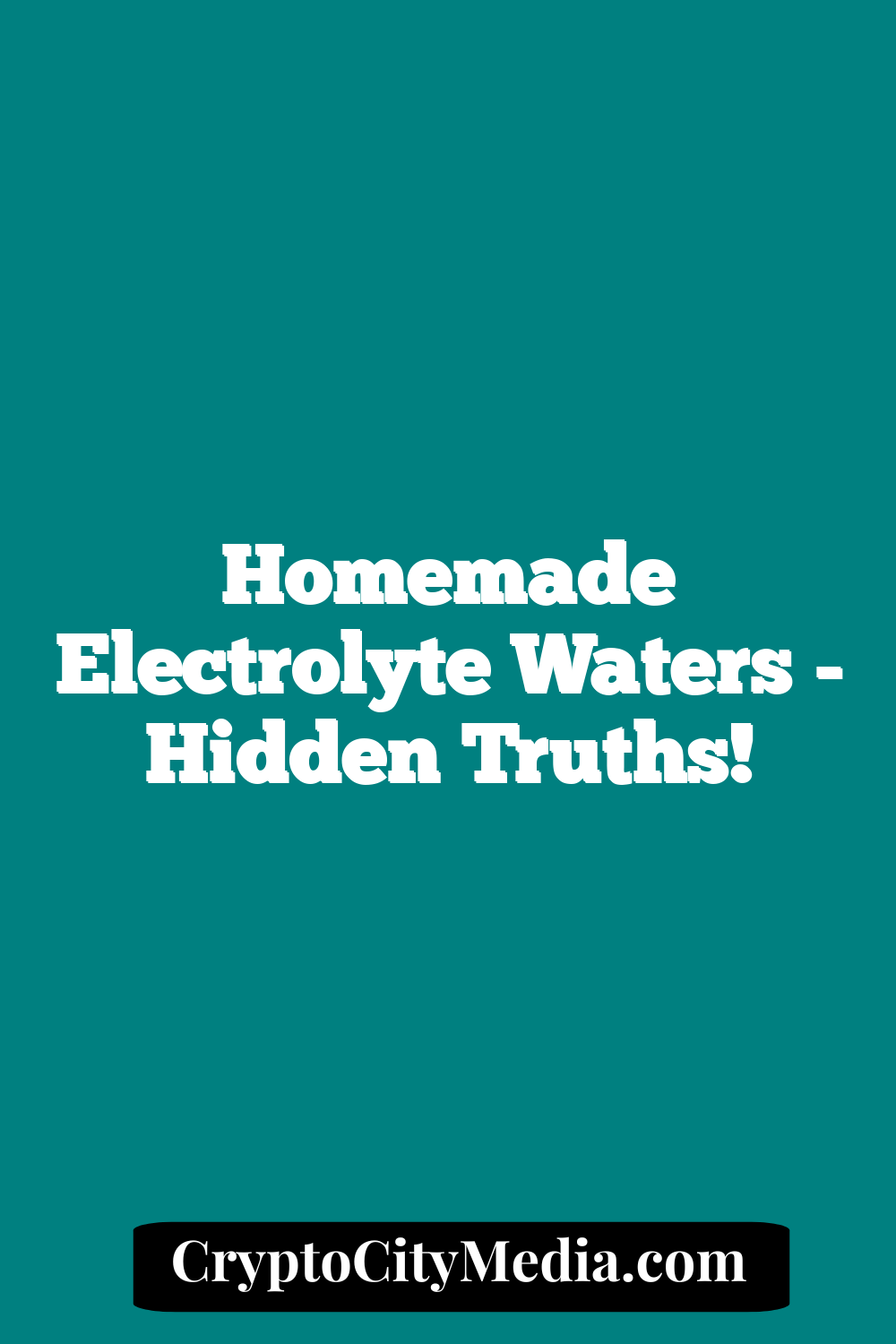It was the middle of summer, and I remember feeling completely drained after a long hike with my family. I thought I had stayed hydrated by drinking water all day, but still, I felt sluggish, dizzy, and my muscles were cramping. That’s when I learned an important lesson — hydration isn’t just about water; it’s about balancing electrolytes, too. It made me wonder: What if there were an easy way to stay hydrated without buying sugar-laden sports drinks? Today we will explore how electrolytes work in the body, why they are essential, and how you can easily make your own homemade electrolyte waters at home with simple, natural ingredients.
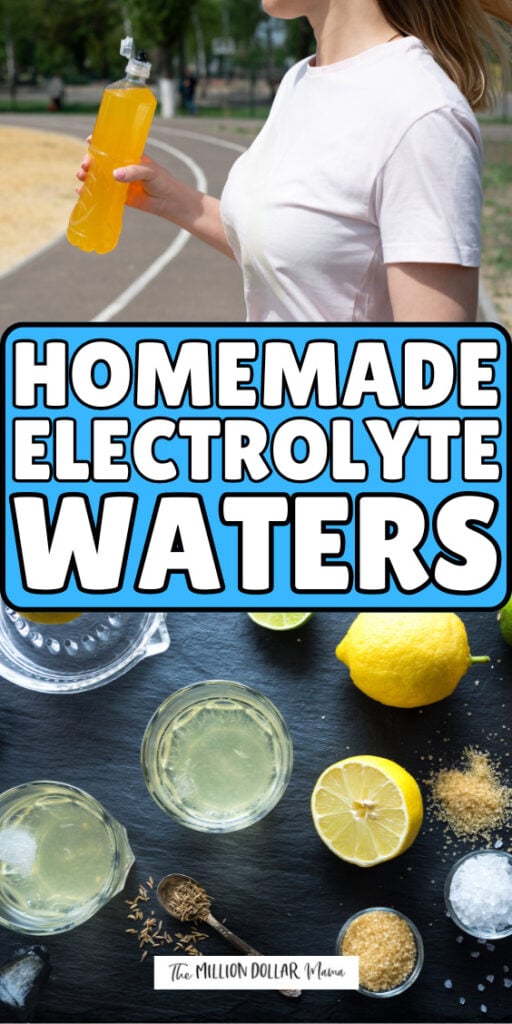
What Are Electrolytes?
Electrolytes are minerals in the body that carry an electrical charge and play a crucial role in various bodily functions.
These minerals include sodium, potassium, magnesium, calcium, and chloride. Without them, our bodies would struggle to perform basic tasks like muscle movement and hydration regulation.
Nerve and Muscle Function: Electrolytes help transmit nerve impulses and control muscle contractions.
Fluid Balance: Sodium and potassium work together to regulate how water moves in and out of your cells, keeping you properly hydrated.
Blood Pressure and pH Levels: Sodium maintains blood pressure, while other electrolytes like bicarbonate help balance the body’s pH levels.
Fatigue Prevention: Magnesium and potassium reduce muscle cramps and fatigue, ensuring better recovery after exercise.
Why Are Electrolytes Important?
When we sweat, we lose essential minerals, not just water. Even mild dehydration — marked by fatigue, dizziness, or muscle cramps — could mean your electrolyte levels are low. Severe imbalances may result in confusion, heart arrhythmia, or heatstroke.
Electrolytes vs. Plain Water
While plain water quenches thirst, it doesn’t replace lost minerals. That’s why, after intense workouts, illnesses, or long hours under the sun, electrolyte-rich drinks are crucial for proper recovery.
The Problem with Store-Bought Sports Drinks
Many commercial electrolyte drinks are loaded with sugars, artificial colors, and preservatives.
Plus, their plastic packaging adds to environmental waste.
Making your own electrolyte water at home is a healthier, eco-friendly, and budget-friendly alternative.
The Science Behind Electrolytes and Performance
Studies show that athletes lose 500-700 mg of sodium per hour of intense exercise through sweat. This makes electrolyte water essential for maintaining stamina and preventing cramps. Moreover, research links dehydration to poor mental performance, impairing focus and cognitive function, which reinforces the importance of replenishing electrolytes even for non-athletes.
Million Dollar Mamas have also liked: 10 Fruit-Infused Detox Water Recipes To Keep Your Skin Hydrated
How To Make Your Own Homemade Electrolyte Waters
Key Ingredients for Homemade Electrolyte Water
1. Salt (Sodium & Chloride): Helps retain water in cells and maintain fluid balance.
2. Coconut Water (Potassium): A natural potassium source, ideal for muscle recovery.
3. Citrus Fruits (Lemons, Limes, Oranges): Provide Vitamin C and refreshing flavor.
4. Magnesium Supplements or Drops: Essential for muscle relaxation and stress relief.
5. Baking Soda (Sodium Bicarbonate): Balances the body’s pH and prevents acid buildup.
6. Honey or Maple Syrup: Offers a quick energy boost with natural sugars.
7. Herbs (Mint, Basil): Add natural flavor while offering calming effects.
Step-by-Step Recipes for Homemade Electrolyte Waters
1. Basic Lemon-Lime Electrolyte Water
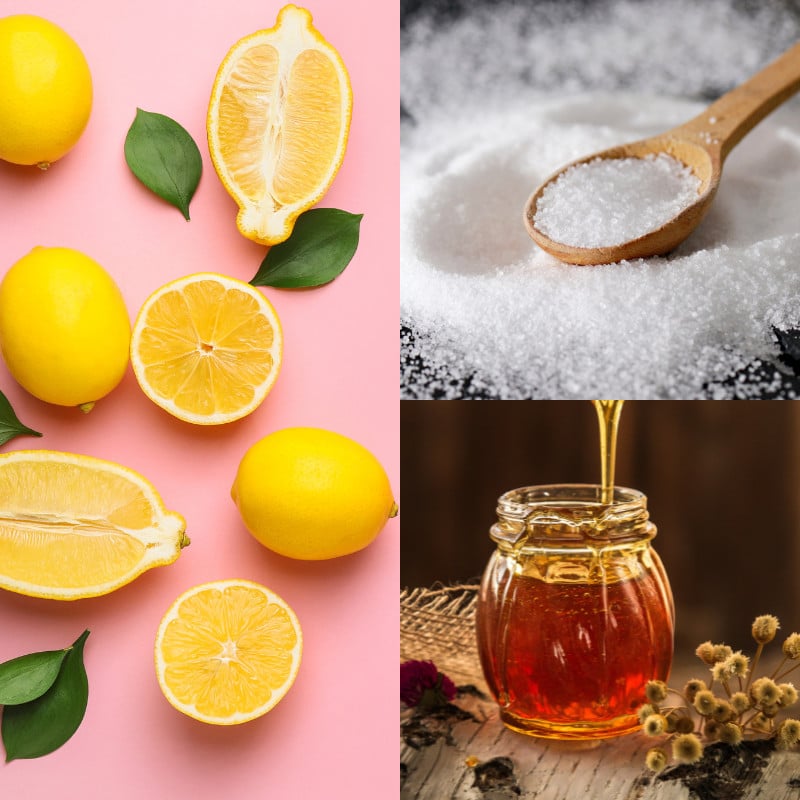
Ingredients:
- 2 cups water,
- 1/8 tsp salt,
- juice of 1 lemon,
- 1 tsp honey,
- 1/4 tsp baking soda.
Instructions: Stir all ingredients until dissolved. Adjust sweetness to taste.
Use Case: Great for everyday hydration.
2. Coconut and Orange Recovery Drink
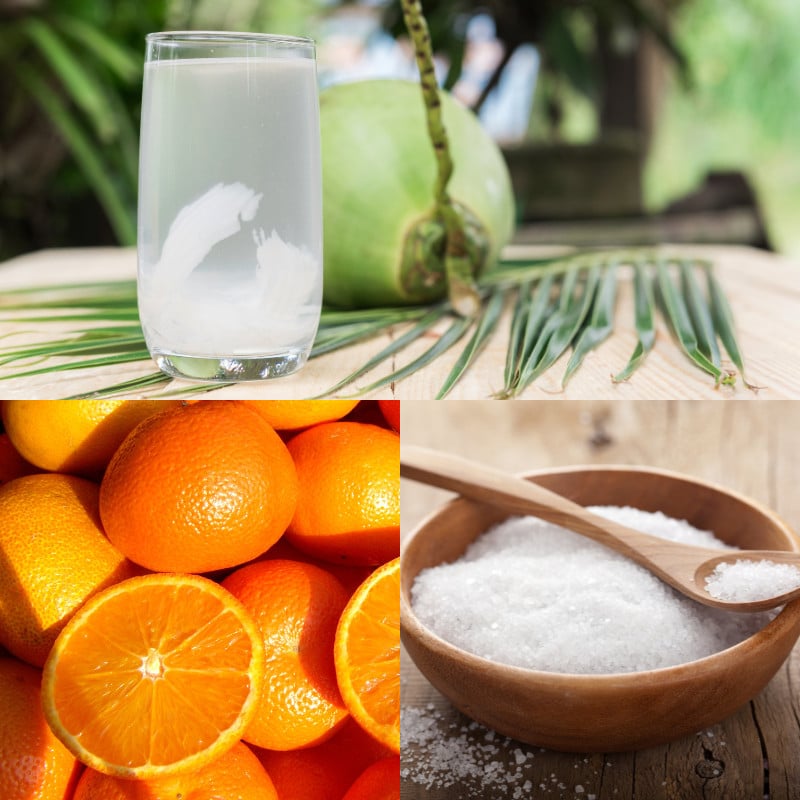
Ingredients:
- 1 cup coconut water,
- 1/4 cup orange juice,
- pinch of salt,
- 1 tsp honey.
Instructions: Mix and chill for a refreshing post-workout drink.
Use Case: Ideal for recovering from exercise.
3. Herbal Mint Electrolyte Infusion
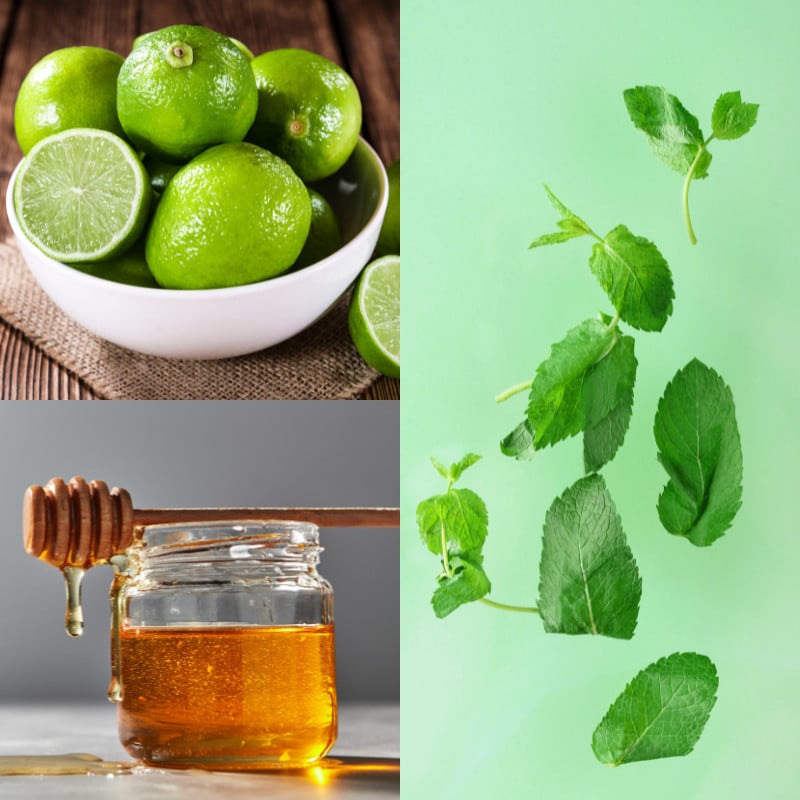
Ingredients:
- 2 cups water,
- a handful of mint leaves,
- juice of 1 lime,
- 1 tsp honey,
- pinch of salt.
Instructions: Boil mint leaves, let cool, then add other ingredients.
Use Case: Perfect for rehydrating during hot weather or illness.
4. Magnesium-Boosted Hydration Water
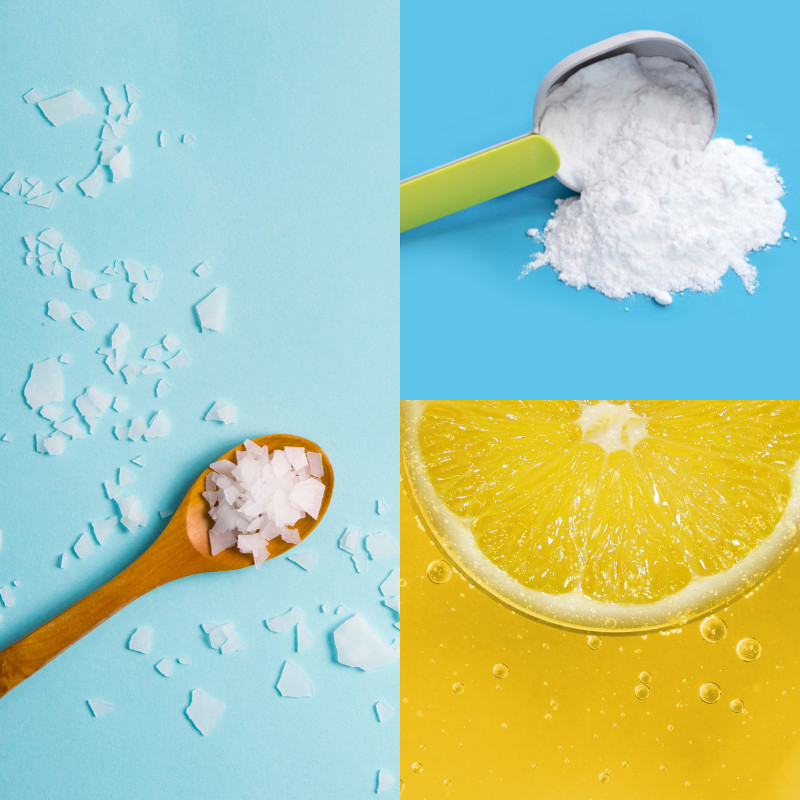
Ingredients:
- 2 cups water,
- magnesium drops,
- juice of 1 lemon,
- 1/4 tsp baking soda,
- pinch of salt.
Instructions: Combine all ingredients and mix well.
Use Case: Best for muscle recovery and nighttime hydration.
Make Them Your Own
Low-Sodium Variations: Use less salt for those with dietary restrictions.
Flavored Additions: Add berries, cucumbers, or herbal tea infusions for variety.
Endurance Athlete Tip: Increase sodium slightly for longer physical activities to prevent cramps.
When and How Much Electrolyte Water Should You Drink?
General Recommendations:
– 1-2 servings a day for mild hydration.
– 3+ servings for intense physical activities.
Signs You Need Electrolytes: Fatigue, muscle cramps, frequent urination, or headaches.
⚠️Caution: Avoid overconsumption to prevent hypernatremia (excess sodium levels).
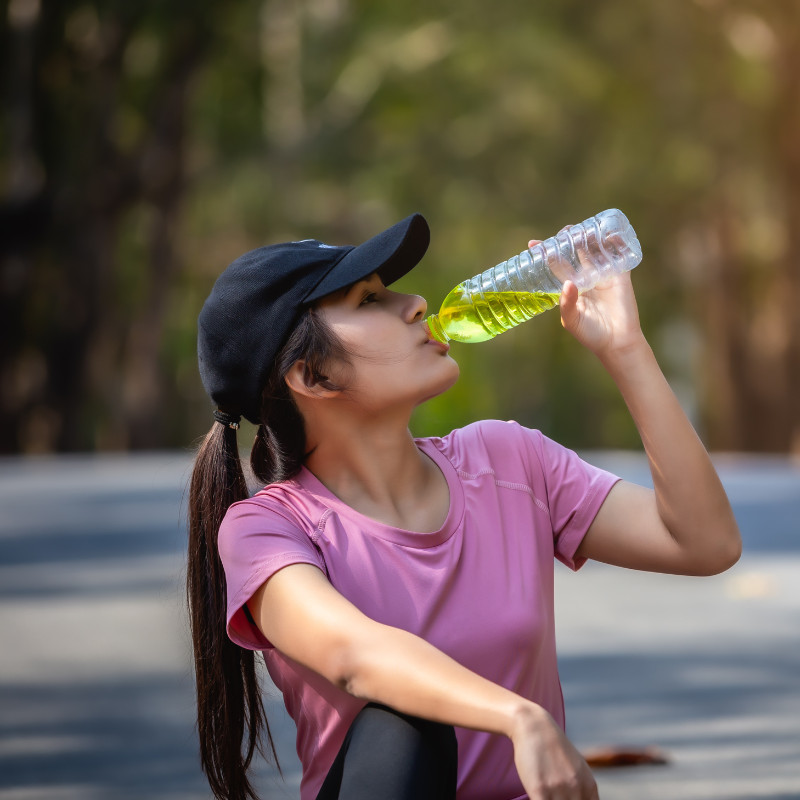
Storage and Shelf Life of Homemade Electrolyte Waters
Use glass bottles to maintain taste and prevent chemical leaching.
Homemade electrolyte water can be stored in the refrigerator for up to 3-4 days.
Prepare large batches and portion them for busy days.
Common Mistakes to Avoid When Making Electrolyte Water**
1. Using Too Much Salt: Overdoing sodium can lead to dehydration instead of hydration.
2. Skipping Magnesium: Magnesium deficiency can cause muscle cramps and fatigue.
3. Ignoring Taste: If the drink isn’t enjoyable, you’re less likely to drink it regularly.
In Conclusion…
Making your own electrolyte water is a simple yet powerful way to stay hydrated and support your health.
With just a few natural ingredients, you can avoid the pitfalls of sugary sports drinks and create delicious, eco-friendly alternatives.
Whether you need a quick recovery drink after a workout or something refreshing for a hot summer day, these homemade recipes have you covered.
So, what’s your favorite flavor combination for homemade electrolyte water?
FAQ
1. Can I drink electrolyte water every day?
Yes, but adjust the ingredients to match your daily activity level and dietary needs.
2. What’s the best natural source of potassium?
Coconut water and bananas are excellent potassium-rich options.
3. Is coconut water alone enough for electrolyte replacement?
It’s helpful, but adding sodium ensures complete hydration.
4. How does electrolyte water help with hangovers?
It replenishes lost minerals and fluids, easing dehydration-related symptoms.
Hi I’m Ana. I’m all about trying to live the best life you can. This blog is all about working to become physically healthy, mentally healthy and financially free! There lots of DIY tips, personal finance tips and just general tips on how to live the best life.
